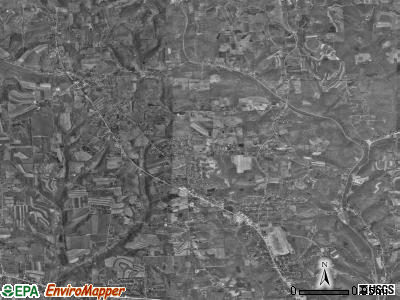


Constitution was later ratified in Philadelphia at the Philadelphia Convention of 1787. Once the Revolutionary War commenced, the Battle of Germantown and the siege of Fort Mifflin were fought within Philadelphia's city limits. Philadelphia hosted the First Continental Congress in 1774, preserved the Liberty Bell, and hosted the Second Continental Congress during which the founders signed the Declaration of Independence, which historian Joseph Ellis has described as "the most potent and consequential words in American history". The city served as the capital of the Pennsylvania Colony during the British colonial era and went on to play a historic and vital role as the central meeting place for the nation's founding fathers whose plans and actions in Philadelphia ultimately inspired the American Revolution and the nation's independence following the Revolutionary War.

Philadelphia was founded in 1682 by William Penn, an English Quaker and advocate of religious freedom. Philadelphia is known for its extensive contributions to American history, especially the American Revolution, and for its contemporary influence in business and industry, culture, sports, and music. Since 1854, the city has been coextensive with Philadelphia County, the most populous county in Pennsylvania, and the urban core of the Delaware Valley, the nation's seventh-largest and one of the world's largest metropolitan regions with 6.245 million residents. Philadelphia is the nation's sixth-most populous city with a population of 1,603,797 as of the 2020 census. It is one of the most historically significant cities in the United States and served as the nation's capital until 1800. Philadelphia, commonly referred to as Philly, is the most populous city in the Commonwealth of Pennsylvania and the second-most populous city in both the Northeast megalopolis and Mid-Atlantic regions after New York City.


 0 kommentar(er)
0 kommentar(er)
